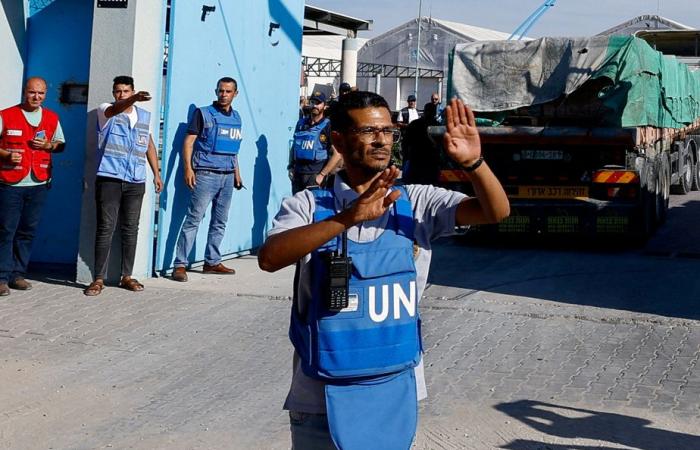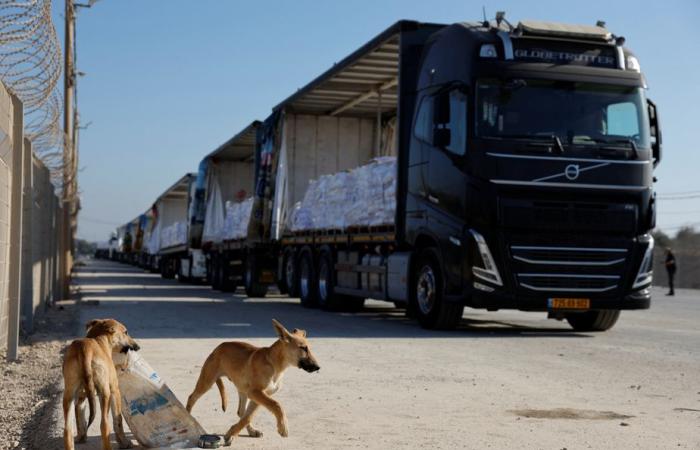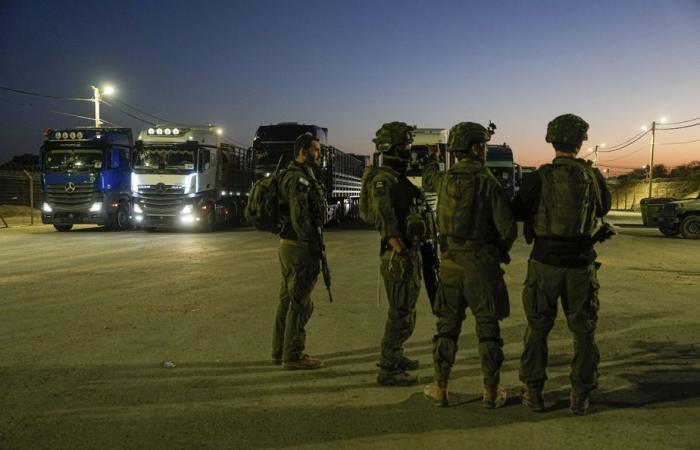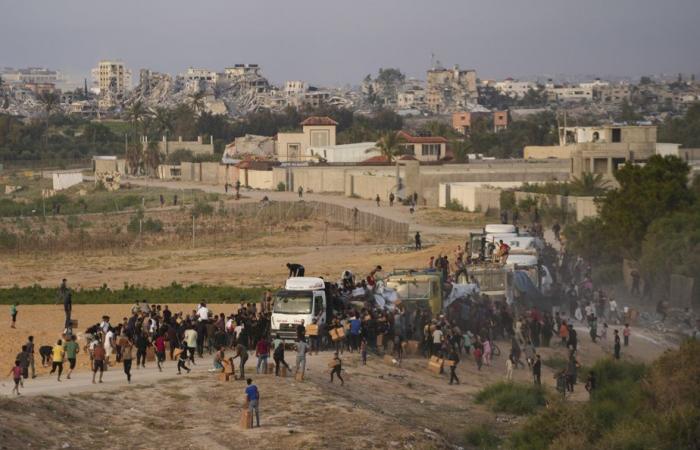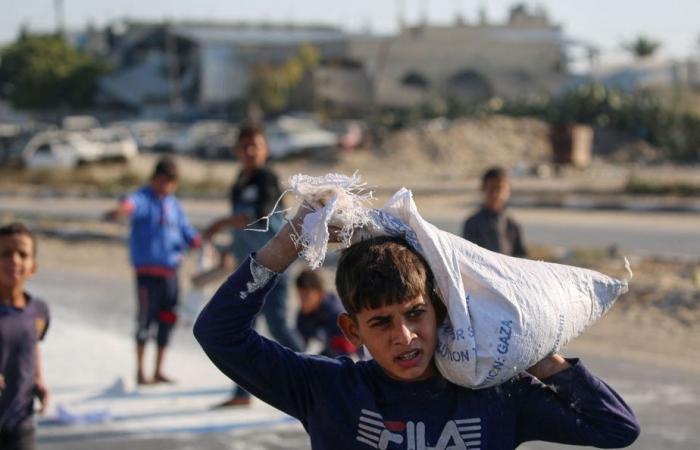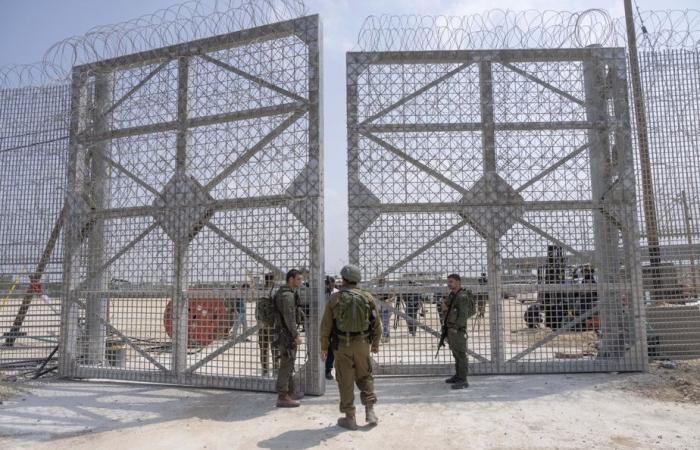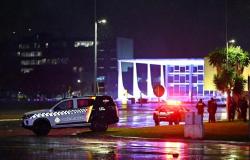Despite its ultimatum to increase humanitarian aid entering Gaza, the United States has decided not to sanction Israel for the dire situation in that territory. The delivery of food, medicine and other products to the Palestinians is near the lowest level since the start of the war 13 months ago.
Posted at 7:45 p.m.
Julia Frankel, Samy Magdy et Jack Jeffery
Associated Press
On October 13, the White House gave Israel 30 days to improve the situation, or risk losing its military support. By the deadline Tuesday, major international aid groups said Israel was far from the goal.
But the US State Department announced that it would not crack down, believing that Israel had made some progress. However, he demanded more results.
Humanitarian organizations accuse the Israeli army of hindering or even blocking deliveries to the Gaza Strip. Almost the entire population – around 2.3 million Palestinians – depends on international aid to survive.
Doctors and NGOs say malnutrition is endemic. Famine may already be gripping the hard-hit north of the enclave, food security experts say.
PHOTO AMIR COHEN, ARCHIVES REUTERS
Humanitarian aid to Gaza is severely hampered. Above, a convoy of trucks passing a checkpoint on the border with Israel.
“It’s really frustrating: By almost any objective measure, every agency says the humanitarian situation has gotten worse during the US deadline,” Aseel Baidoun, head of the Palestinian Medical Aid group, said Wednesday.
“Even though we have provided all the evidence that we are at risk of starvation, the United States miraculously finds that Israel is not violating the humanitarian aid law. »
Tel Aviv, which controls all crossings into the Gaza Strip, says it is committed to providing humanitarian assistance and is working to increase deliveries. COGAT, the military body responsible for passing aid, says it has taken several measures over the past month to speed up deliveries to the territory, including the opening this week of a fifth crossing point, in the center of the enclave.
Israel says the UN and international aid groups need to be more effective in distributing aid.
Where is the help?
Aid in the Gaza Strip is measured in trucks of food and supplies entering the territory. The United States demanded 350 trucks per day, still less than the 500 trucks per day before the war.
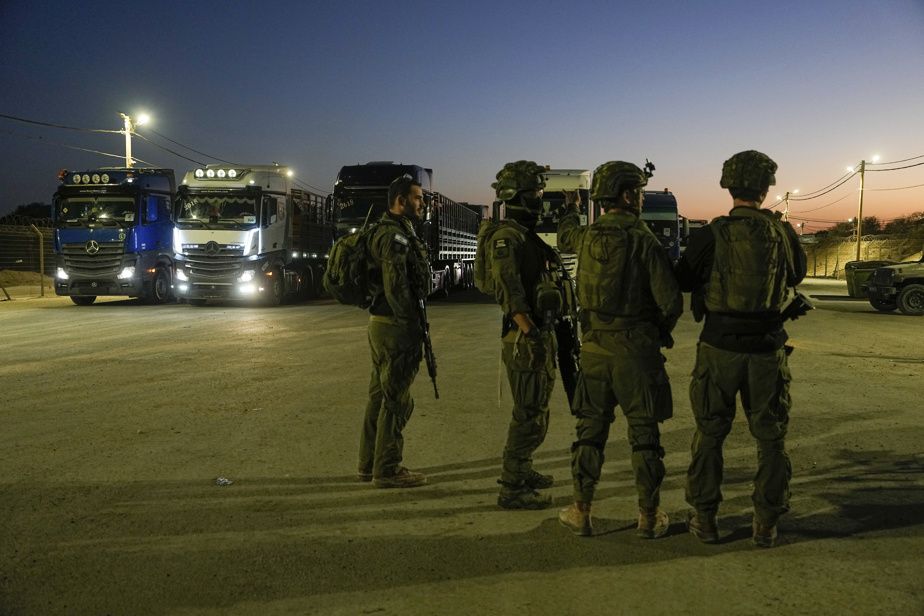
PHOTO TSAFRIR ABAYOV, ARCHIVES ASSOCIATED PRESS
Israeli soldiers stand in front of a convoy of humanitarian aid trucks shortly before it entered the Gaza Strip at the Erez checkpoint, southern Israel, in October.
In October, entries fell to their lowest level since the first month of the war. According to the Israeli government, the average entry per day is 57 trucks. We went to 100 trucks per day in November, a little less than in November 2023.
But according to the UN, aid is coming in even less than before, averaging 39 trucks per day since 1is October: She explains that she cannot reach the main crossing point in the south to collect shipments due to Israeli military restrictions and insecurity.
According to the UN, virtually no aid has reached the northern part of the Gaza Strip since the beginning of October. This coincides with a major Israeli offensive against Hamas in the areas of Jabaliya, Beit Lahiya and Beit Hanoun, which has prevented deliveries, according to the IDF.
Israel explains the drop in aid in October by the closure of crossing points to the Palestinian enclave during the major Jewish holidays.
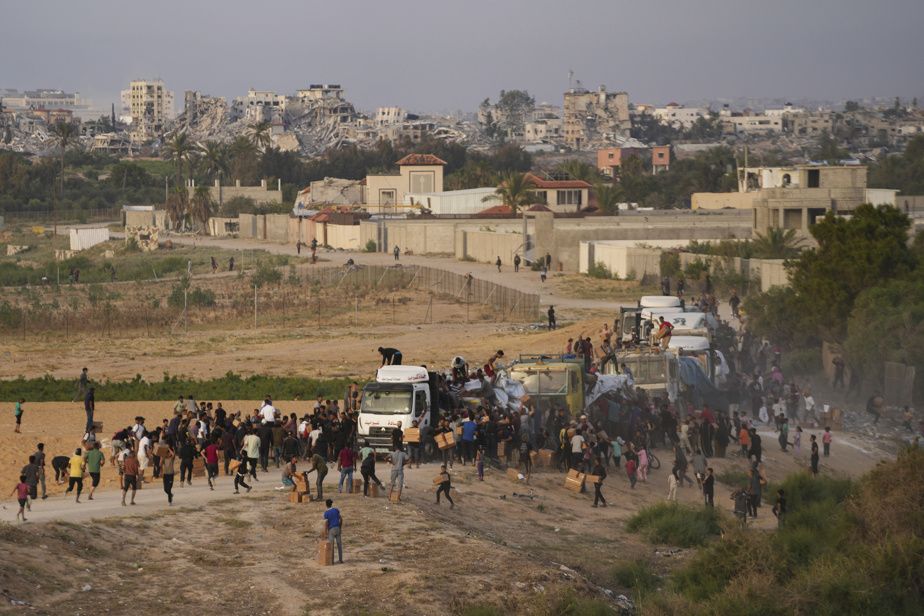
PHOTO ABDEL KAREEM HANA, ASSOCIATED PRESS
Palestinians rush to aid trucks in May. Insecurity, chaos and fighting are affecting the delivery and orderly distribution of food.
Under international pressure, COGAT authorized two deliveries to these regions this month.
But very few surrendered. Last week, the World Food Program (WFP) said troops on the ground had ordered its trucks to unload their cargo before their destination. During another delivery scheduled for Monday, WFP was only able to deliver three out of 14 trucks due to lack of authorization in time. When an attempt was made to deliver the remainder the next day, the military refused permission, according to the WFP.
Passages refused
The considerable discrepancy between the Israeli and UN counts of trucks allowed into the Gaza Strip is explained by the following: hundreds of trucks are piled up on the Gaza side of the main crossing point in the south and are not recovered by the United Nations for distribution.
Israel accuses UNRWA, the UN agency for Palestinian refugees, of not doing enough to recover the shipments.
The UN and aid groups counter that it is often impossible for them to reach the crossing point because the Israeli army does not always ensure the security of aid convoys, faced with military operations and generalized anarchy.
“If there is no security to get help, we cannot get it. And it will not reach the people who need it,” said Louise Wateridge, spokesperson for UNRWA.
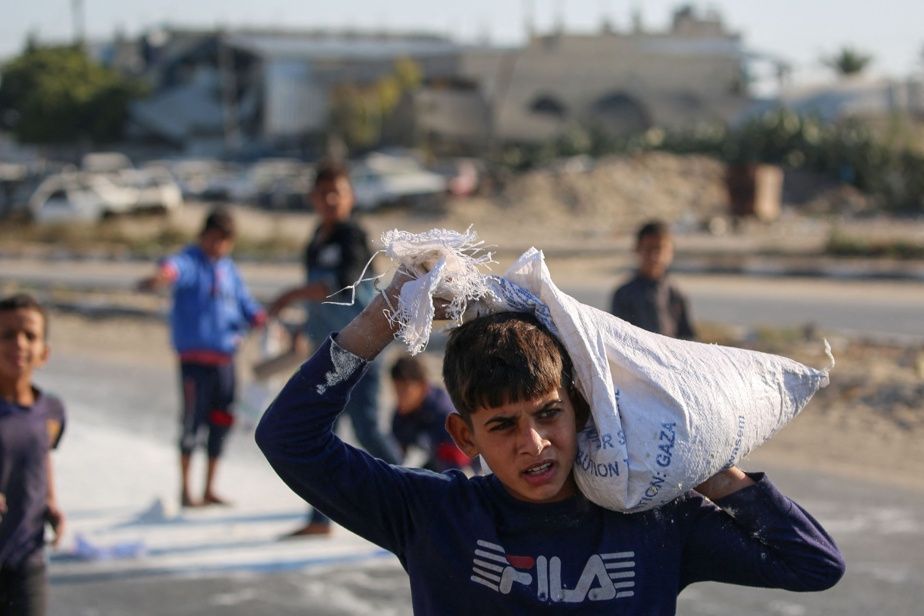
PHOTO EYAD BABA, ARCHIVES AGENCE FRANCE-PRESSE
Palestinian boys collect flour after a bag fell from a passing truck on the road in Deir el Balah, central Gaza Strip, in November.
UNRWA is the main agency responsible for obtaining and distributing aid in the Palestinian enclave. Last month, Israel banned it, saying Hamas had infiltrated it, something UNRWA denies.
Aid groups also accuse the Israeli army of preventing aid trucks from reaching areas where the fighting is most intense, particularly in the northern Gaza Strip.
In October, the UN Office for the Coordination of Humanitarian Affairs said Israeli authorities rejected 43 percent of requests for humanitarian aid and obstructed 16 percent.
According to aid groups, Israeli authorities have also barred certain vehicles and goods from entering the Gaza Strip, often without explanation. Rachel Morris of the aid organization Mercy Corps said trucks carrying the organization’s tents were turned away at least five times.
Israel says it refuses entry to supplies that could be used as weapons by Hamas.
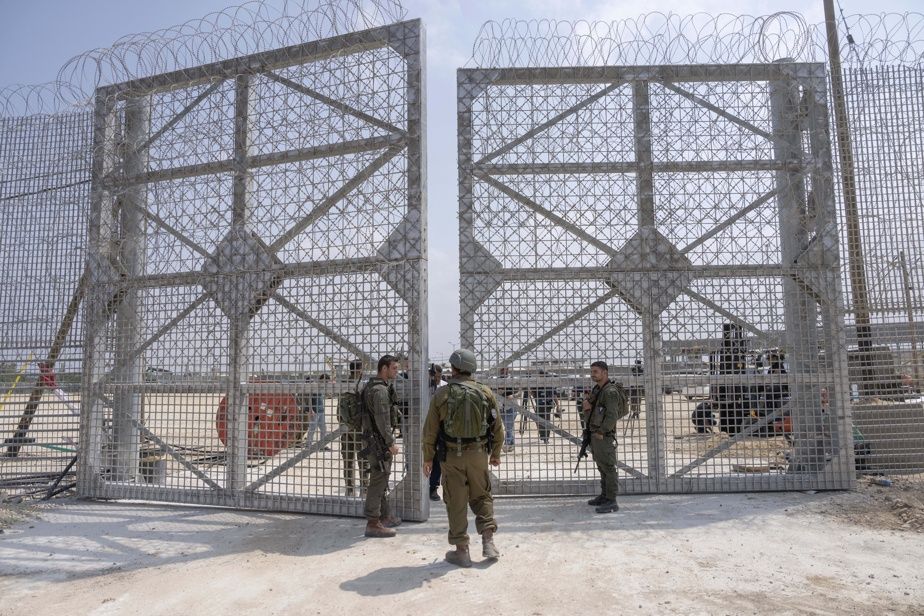
PHOTO OHAD ZWIGENBERG, ARCHIVES ASSOCIATED PRESS
Israeli soldiers open the gates to an area where aid trucks are inspected before crossing into the Gaza Strip, near the Erez checkpoint in southern Israel in May.
“During my visit to Gaza last week, I witnessed the deliberate starvation of almost 2 million civilians as the bombing continues,” said Jan Egeland, secretary general of the Norwegian Refugee Council, one of the main providers of humanitarian aid. “There is almost no aid flowing into Gaza. »
Insecurity, chaos and looting
Thefts also hamper aid distribution. The military and aid agencies both acknowledge that criminal gangs – often run by local families – are looting the trucks.
Some days, 30 to 40% of aid is stolen by criminals or by Hamas, estimates an Israeli official, who requested anonymity.
According to Shani Sasson, spokesperson for COGAT, the Israeli army tried to secure part of the road and find alternative routes. But it cannot accompany every truck and criminal groups are constantly on the move.
Gaza police stopped protecting the trucks a long time ago, according to the UN, because Israel targeted them, considering them to be part of Hamas.

